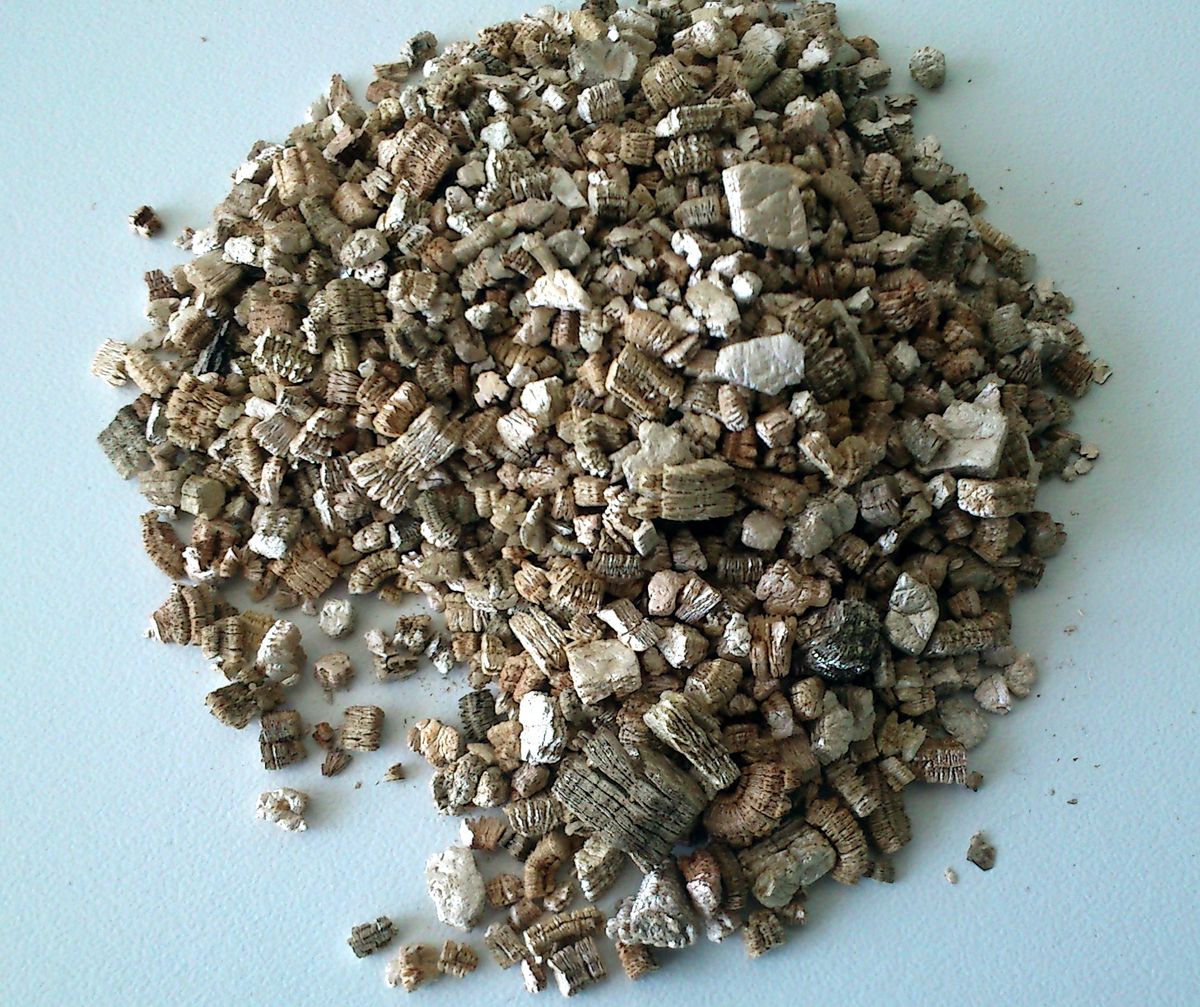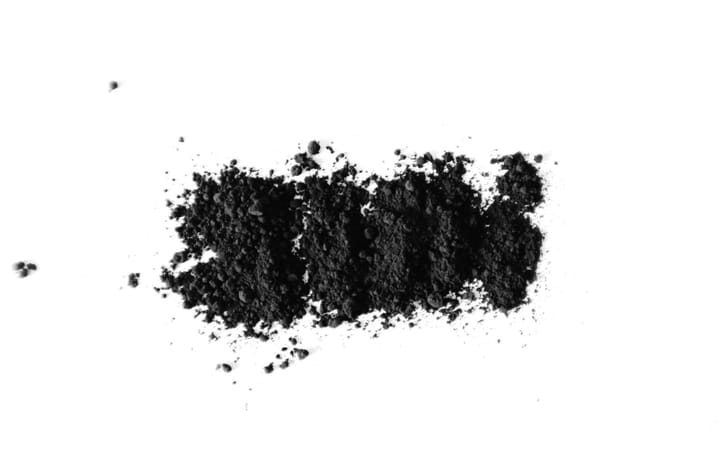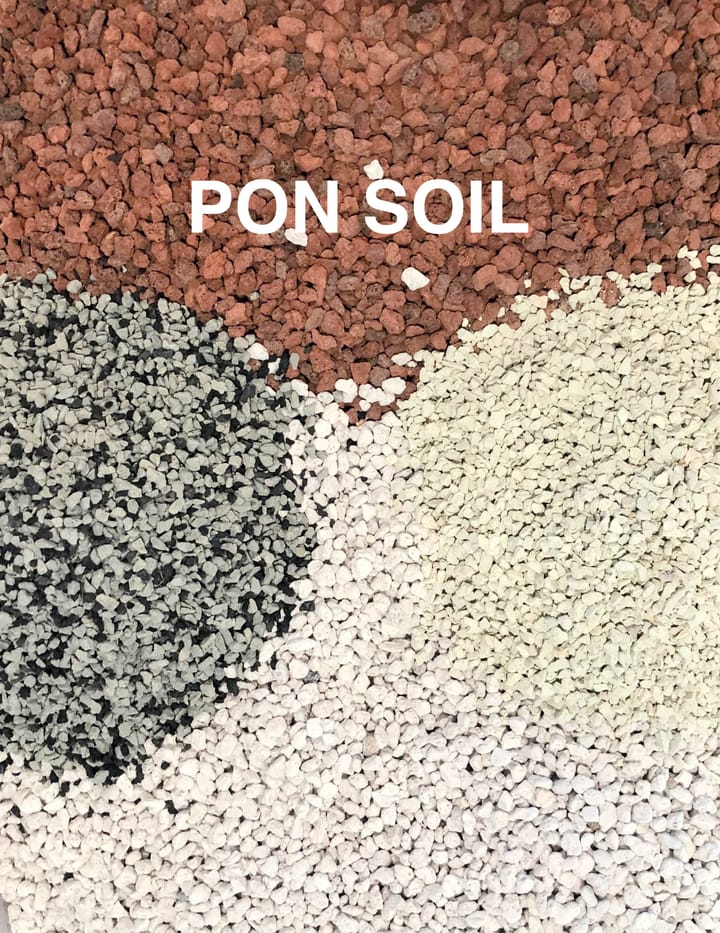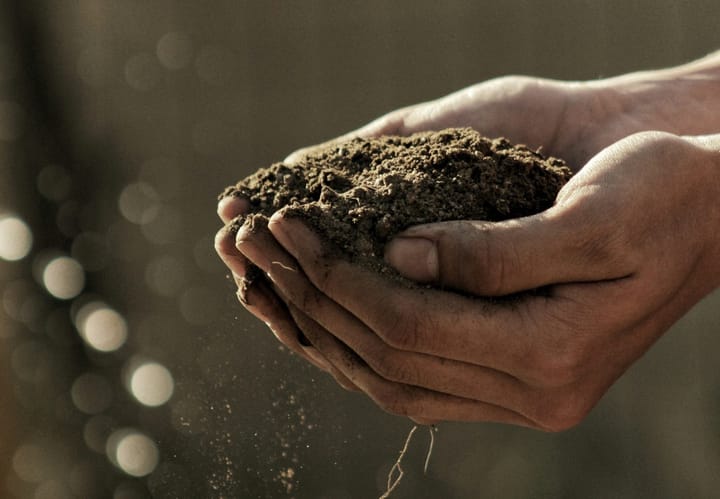Vermiculite for Gardening
Vermiculite is a versatile soil additive that can significantly benefit your gardening efforts. This naturally occurring silicate mineral, mainly hydrated magnesium iron aluminum silicate, enhances soil quality and promotes healthy seedlings.

Its lightweight, absorbent, and airy properties make it ideal for improving drainage and moisture retention in container gardening and garden beds.
Incorporating Vermiculite into your garden can be as simple as mixing it directly into your flowerbeds or amending your potting soil. Available in four different sizes, the smallest-sized Vermiculite can be used to germinate seeds, while the largest size is excellent for increasing soil aeration. Regardless of grain size, you'll find that Vermiculite provides remarkable benefits to your garden's overall health and productivity.
By using this multipurpose mineral in your gardening routine, you'll notice improved nutrient retention, reduced risk of root rot, and better moisture control. As you add Vermiculite to your soil, remember that it contributes to a thriving and flourishing garden, ensuring success with your plants and seedlings.
Understanding Vermiculite
Vermiculite is a class of hydrated laminar minerals that resemble mica in appearance. It is a beneficial addition to your garden as it undergoes a heat treatment process, expanding the material into pellets made of thin plate layers. This makes it a sterile, mold-resistant, odorless, and non-toxic substance.
Vermiculite is often added to potting soil to improve drainage and moisture retention when gardening. The horticultural vermiculite is created by exfoliating vermiculite rocks heated at temperatures above 1100 degrees Fahrenheit. This process makes the Vermiculite more suitable for growing plants.
In addition to improving soil quality, Vermiculite can assist in seed germination and provide insulation and fire resistance for construction applications. You can effectively use Vermiculite to enhance your gardening experience by understanding its properties and benefits.
Vermiculite Vs Perlite
Vermiculite and perlite are both lightweight, non-toxic minerals commonly used in gardening. They appear similar but serve different purposes in improving garden soil. Knowing the differences and their specific applications helps you choose the best option for your plants.
Vermiculite is known for its high moisture retention, making it ideal for plants requiring consistent soil moisture. It helps loosen soils, ensuring your plant's roots have enough room to grow. Meanwhile, perlite is better suited for plants that need their soil to dry out between waterings, such as cacti and succulents, as it offers excellent drainage properties.
Remember that their distinct moisture retention properties can significantly impact your gardening success when deciding whether to use Vermiculite or perlite. Consider the specific needs of your plants and adjust your soil amendments accordingly to ensure a thriving garden.
Vermiculite for Seed Germination
Vermiculite is an excellent choice for seed germination due to its moisture-retention capacity, lightweight nature, and ability to provide good aeration. It's a natural mineral compound that can help your seeds germinate and grow more quickly. When starting seeds, mix Vermiculite into your potting soil or add it directly to the bottom of a pot before adding soil.
Incorporating a 1/4-inch layer of Vermiculite helps prevent grass seed from drying out while it germinates. This versatile mineral can even be used in worm bins, providing grit that helps worms digest food. One significant advantage of starting seeds in Vermiculite is its non-toxic and clean nature, making it an excellent project for children.
When using Vermiculite for seed germination, remember that it can be employed for various seeds, contributing to faster germination and easy transplanting due to its lightweight characteristics. With its impressive moisture-absorption ability, Vermiculite promotes successful germination and early seedling growth, making it an invaluable tool for gardening endeavors.
Vermiculite and Soil Aeration
Vermiculite can significantly improve soil aeration, which is essential for the healthy growth of plants. Adding Vermiculite to your garden or potting soil can increase water and nutrient retention, leading to more robust plants. This is particularly beneficial for gardens with heavy clay or compacted soil, as it helps to create more space for air and water movement.
Regarding soil types, sandy soil drains too quickly, while clay soil retains too much water, which can lead to poor aeration. Mixing Vermiculite into these soils can create a balanced environment for your plants to thrive. The lightweight structure of Vermiculite will enable it to hold the right amount of water, preventing soil compaction and promoting healthy root growth.
Incorporating Vermiculite into your gardening routine can be a simple and effective way to optimize soil aeration without relying on other methods. Its natural properties make it a reliable soil amendment for promoting the health of your plants and ensuring they have access to the necessary nutrients and moisture levels. So, next time you work on your garden, consider adding vermiculite to your soil for improved aeration and overall plant health.
Vermiculite and Drainage
Vermiculite is an excellent soil amendment that can significantly improve drainage in your garden. It offers better water and moisture retention, ensuring your plants have the right amount of hydration. Adding Vermiculite to your potting soil or garden beds can create an ideal plant-growing environment.
This lightweight material is comprised of naturally occurring hydrated magnesium iron aluminum silicates. When added to soil, it provides an airy, absorbent medium that allows water to flow easily. This means your plant's roots will not become waterlogged, preventing root rot and promoting healthy growth.
Incorporate a 2-3 inch (5-7.5 cm) layer into the soil to make the most out of Vermiculite in your garden. This will aid in balancing soil moisture, keeping sandy soils from drying out too quickly, and helping clay soils drain more effectively. The improved drainage and water retention of vermiculite contribute to a more successful gardening experience.
Vermiculite and PH Balance
Vermiculite is a naturally occurring mineral that can be beneficial for your garden. It is lightweight, absorbent, and airy, making it an ideal choice for a soil amendment. One notable advantage of using Vermiculite in your garden is its ability to help balance pH levels.
Many vegetables prefer a slightly acidic soil environment, while Vermiculite has an average pH of around 7.0. When added to your garden soil, Vermiculite can aid in creating a more optimal growing environment for your plants, including vegetables and even tropical plants. This is because it can enhance moisture retention and promote better drainage and aeration, all while maintaining a neutral pH balance.
Remember that the exact pH of Vermiculite may vary depending on its source and the environmental conditions around the quarry. However, using Vermiculite can still be a great way to improve soil quality and create a suitable growing environment for most plants in your garden, as they typically benefit from balanced pH and enhanced moisture retention.
Using Vermiculite in Potting Soil
Vermiculite is a lightweight, highly absorbent soil additive that improves soil quality and helps seedlings root. Essential minerals such as potassium, calcium, and magnesium are crucial when creating a potting soil mix. Adding Vermiculite also provides extra ammonium, which is beneficial for plant growth.
To use Vermiculite in your potting soil, combine it with compost peat or use it alone. This addition will lighten and condition the soil, promoting faster growth and development of your plant's root systems. Vermiculite's sponge-like quality helps retain moisture, improving your potting soil mix's water-holding capacity.
When using Vermiculite outdoors, ensure sufficient ventilation and avoid creating dust by keeping it damp. This prevents particles from entering your home on your clothing, reducing risks associated with Vermiculite used in gardening activities. Following these guidelines, you can effectively enhance your potting soil and support healthy plant growth.
Vermiculite for Seedlings and Cuttings
Vermiculite is a valuable soil amendment that can significantly benefit your seedlings, cuttings, and root cuttings. Mix Vermiculite into the soil when starting seeds to improve water retention and provide better aeration. This helps create an ideal environment for delicate seedlings to grow and thrive.
For cuttings and root cuttings, Vermiculite supports healthy root growth by maintaining proper moisture levels and providing essential nutrients. To help cuttings take root, dip the cut end in rooting hormone and then insert it into a mixture of Vermiculite and a well-draining soil or potting mix. This combination will ensure the cutting has the nutrients and moisture for successful rooting.
Vermiculite's ability to retain water and nutrients in hydroponic systems makes it an excellent media choice for plant support. Mix Vermiculite with an equal amount of perlite or another well-draining medium to improve moisture retention without causing waterlogging. With the proper balance of air and moisture in your growing medium, your plants will have an improved chance of success.
Vermiculite as a Fertilizer
Vermiculite is a versatile gardening tool that assists in improving soil quality and promoting healthy plant growth. Although Vermiculite is not a direct fertilizer, it is crucial in increasing water and nutrient retention. This characteristic ensures essential nutrients from compost or added fertilizers are readily available to your plants.
Feed your seedlings with a weak fertilizer solution when using Vermiculite without soil. For example, apply one tablespoon (15 mL) of soluble fertilizer with 1 gallon (4 L) of water once the first leaves appear. Vermiculite's sterile nature also helps prevent damping off and allows for easy removal of seedlings without damaging their roots.
In addition to these benefits, Vermiculite can enhance aeration and drainage in your garden soil, providing a conducive environment for plant roots to access nutrients more efficiently. Incorporating Vermiculite into the soil can be particularly helpful for moisture-loving plants, as it retains water and allows for the steady release of absorbed nutrients. By leveraging the unique properties of Vermiculite, you can create a flourishing garden that supports your plants' optimal nutrient intake.
Vermiculite and Container Gardening
Due to its many benefits, Vermiculite can be an excellent addition to your container gardening routine. As a lightweight, highly absorbent soil additive, it helps improve soil quality and promotes healthy root growth in potted plants and houseplants. Using Vermiculite in your gardening containers is especially beneficial in hot climates where ample rain is scarce, as it retains moisture and helps prevent your plants from drying out.
When mixing your potting soil, consider combining equal parts of vermiculite, peat moss or coco coir, and perlite. This combination will create a well-draining, aerated soil mix that promotes healthy root development, nutrient retention, and overall plant growth. Vermiculite is even suitable for starting seeds and root cuttings, as it supports seed germination and protects delicate roots from drying out while they establish themselves.
In addition to its moisture-retaining properties, Vermiculite also provides a source of grit, which is beneficial for worm bins and other composting systems. Adjust your watering schedule to avoid overwatering when using Vermiculite in your container gardening. Incorporating Vermiculite into your container gardening routine can help support healthy plant growth and achieve thriving potted plants and houseplants.
Vermiculite for Moisture Retention
Vermiculite is a valuable addition to your gardening routine due to its moisture-retaining properties. This absorbent mineral can improve your soil's water retention, making it an excellent choice for various plants, including vegetables and tropical plants. By incorporating Vermiculite into your soil mix, you can ensure that your plants receive consistent moisture.
When using Vermiculite in your garden, it provides a lightweight, non-deteriorating solution for moisture control. It originates from a naturally occurring mineral - magnesium-aluminum-iron silicate - which expands into a worm-like shape when mixed with water. This unique structure allows the soil to retain moisture more efficiently, supporting the healthy growth of your plants.
In addition to moisture control, Vermiculite offers benefits such as increased nutrient retention and improved soil aeration. These factors contribute to more robust and healthier plants. So, consider adding Vermiculite to your arsenal of gardening tools and techniques when looking for ways to enhance your garden's soil and support your plants' growth.
Using Vermiculite with Lawns and Bulbs
A 1/4-inch layer of Vermiculite can be beneficial when planting or overseeding your lawn. It helps retain moisture and keeps the grass seed from drying while germinating, promoting healthy growth. Additionally, Vermiculite provides better aeration and can improve overall soil structure.
Vermiculite is also useful when planting bulbs in your garden. Mixing Vermiculite with the soil can improve drainage and protect your bulbs from rot due to excess moisture. This is particularly useful in areas with heavy clay soil, ensuring your bulbs have a suitable environment to thrive.
For storing bulbs during the off-season, Vermiculite can play a crucial role. Remove your bulbs from the ground, allow them to dry for a few hours, then place them in a container with Vermiculite. This will help keep the bulbs dry and protected from damage, ensuring they can be replanted for the next growing season.
Vermiculite Usage in Various Plant Types
When using Vermiculite in your garden, it's essential to tailor its application to the specific needs of various plant types. Vermiculite is a versatile and beneficial addition to many gardening scenarios, improving soil aeration, drainage, and nutrient retention.
For root crops like carrots and potatoes, incorporating vermiculite into the soil mix can promote improved growth and help prevent rot by improving drainage. Cacti and other succulents also benefit from Vermiculite in their soil mixes, as it aids in retaining moisture while preventing excess water from causing root rot. You can mix Vermiculite with a well-draining soil or cactus mix to achieve the ideal balance.
Regarding water-loving plants such as ferns or African violets, a higher vermiculite ratio in the soil mix (e.g., two parts vermiculite to 1 part soil) is beneficial, as it maintains consistent soil moisture. For roses, incorporating Vermiculite into the planting hole can promote healthy root development and provide essential nutrients for the plants to thrive.
Vermiculite vs. Other Soil Amendments
Vermiculite is a popular soil amendment known for retaining moisture and improving soil aeration. It is a mica-like mineral mined, exfoliated, and treated with heat and pressure to expand. However, there are other commonly used soil amendments to consider, such as peat moss and perlite.
Peat moss is a lightweight, water-retaining organic material that can enhance the soil structure in your garden. It's particularly beneficial for moisture-needy plants and improves soil fertility. However, unlike Vermiculite, peat moss can make soil acidic, affecting certain plants' growth.
On the other hand, perlite is a volcanic rock that provides excellent drainage and prevents soil compaction. It is an alternative to Vermiculite and peat moss that is especially useful for plants requiring well-drained soil to avoid root rot and overwatering issues. To decide which soil amendment is best for your gardening needs, consider the specific requirements of your plants and the existing soil conditions.
Vermiculite Packing and Storage
Proper packing and storage are essential When working with Vermiculite in your garden. Vermiculite usually comes in bags of various sizes to suit your gardening needs. Before storing, ensure the bags are properly sealed to keep the Vermiculite dry and free from contaminants.
It would be best to store vermiculite bags in a cool, dry area away from direct sunlight or excessive moisture. This helps maintain the effectiveness and structure of the product. If possible, store the bags on elevated shelves or pallets to prevent direct contact with the ground and reduce the risk of damage caused by moisture or pests.
While handling vermiculite packaging, avoid puncturing the bags, as this can lead to spillage and decreased efficiency. Always lift and transport the bags carefully to minimize the risk of accidents. By following these simple storage guidelines, you can ensure that your Vermiculite stays in excellent condition, ready for use in your garden.
Vermiculite Use in Indoor Plants
Vermiculite is a highly absorbent, lightweight material that benefits your indoor plants in numerous ways. By incorporating it into your potting mix, you can significantly improve the growth and health of your plants. Vermiculite holds water up to three to four times its volume, acting as a slow-release watering system that ensures the soil remains consistently moist.
Using vermiculite in your indoor plants' potting mix promotes faster germination and growth while anchoring the root systems securely. It prevents root rot and helps maintain a healthy, robust plant. Examples of indoor plants that thrive in Vermiculite include spider plants and pothos, also known as devil's ivy.
You can also sow seeds directly into 100% vermiculite or a 50:50 mix of vermiculite and seed-sowing compost. This approach encourages better seed germination, leading to more vigorous indoor plants. Whether a novice or an experienced gardener, incorporating Vermiculite into your indoor plants' care can lead to healthier, flourishing foliage.
Considerations When Using Vermiculite
When using Vermiculite in your gardening, there are a few aspects to consider for better results. Vermiculite is odorless, which ensures a pleasant gardening experience. It is also resistant to mold and helps prevent the development of root rot and damping, allowing your plants to grow healthier.
Incorporating Vermiculite into your flower pots and planting process assists in aerating the soil and retaining moisture. This, in turn, accelerates root growth and ensures better water and nutrient uptake. Mixing Vermiculite with the appropriate amount of soil is essential to prevent over-retention of moisture and ensure proper drainage.
Finally, adding Vermiculite to your garden can improve the planting process for seedlings and mature plants. While working with this lightweight material, remember to handle it gently and observe its moisture levels to prevent any potential drawbacks. With these considerations in mind, you can confidently make the most of Vermiculite's benefits for healthier plants and a thriving garden.
Conclusion
Vermiculite can enhance your gardening experience by improving soil aeration drainage and delivering essential nutrients to your plants. It is beneficial for rooting cuttings, increasing the success rate, and speeding up the growth of new roots. With its lightweight, highly absorbent properties, Vermiculite is valuable to any gardener's toolkit.
You can incorporate Vermiculite into your garden by mixing it with soil, using it in soilless potting, or adding it to worm bins. It plays a significant role in maintaining seedling moisture and promoting healthy root systems. Whether you are a hobbyist or professional gardener, Vermiculite offers multiple advantages to help your plants thrive.
Remember, Vermiculite is a natural, versatile mineral with numerous applications in gardening. While it is often compared to perlite, they have distinctive characteristics that make them effective in different ways. By understanding its unique qualities and how to use it correctly, you can optimize your gardening results and enjoy the benefits of this remarkable mineral.
Frequently Asked Questions
What is the ideal ratio of Vermiculite to soil?
The ideal ratio of Vermiculite to soil depends on the type of plants you're growing and the specific needs of their root system. Generally, a ratio of 1:4 (one part vermiculite to four parts soil) works well for most plants. However, for seedlings or plants with delicate roots, you may need a higher concentration of Vermiculite, such as a 1:2 ratio.
How does Vermiculite improve seed germination?
Vermiculite helps seed germination by retaining moisture, which keeps the seed consistently moist and encourages germination. The airy structure of Vermiculite also promotes good aeration, enabling the seedlings' roots to breathe and preventing fungal diseases typically caused by excessive moisture. Additionally, it improves nutrient exchange, ensuring your seedlings receive the necessary nutrients for growth.
Can Vermiculite be used in a vegetable garden?
Yes, Vermiculite can be used in a vegetable garden to improve soil structure and water retention. Vermiculite's properties are particularly helpful for root vegetables, such as carrots and radishes, as it prevents the soil from compacting and ensures proper root development. Mix it into your existing garden soil or use it in a custom blend of potting mix for container gardening.
What are the benefits of using Vermiculite in gardening?
Using Vermiculite in gardening offers several benefits, including improved water retention, good aeration, and enhanced nutrient exchange. By retaining water it reduces the frequency of watering and supports consistent moisture levels for your plants. Its airy structure promotes healthier root systems and minimizes the risk of root rot. Vermiculite also has a high cation exchange capacity, enabling it to hold on to nutrients and release them slowly to plant roots.
How does Vermiculite differ from perlite in gardening?
Vermiculite and perlite are soil amendments that improve aeration and water retention but have slightly different properties. Vermiculite, composed of hydrous phyllosilicate minerals, retains more water than perlite and has a higher cation exchange capacity, making it better at holding nutrients. On the other hand, perlite is a volcanic glass that offers superior drainage capabilities and is better suited for plants that need fast-draining soils. When choosing between the two, consider your plants' specific water and nutrient needs.


